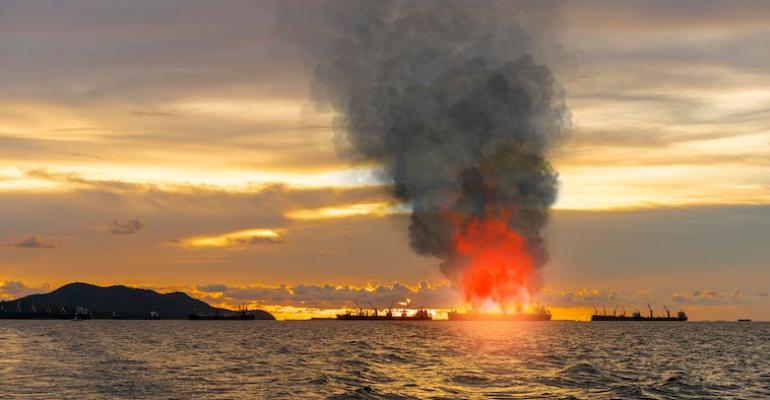The shipbuilder is set install the safety equipment on new vessels for one of its major customers, which Green Instruments expects will pave the way for more orders.
In many cases, shipboard fires are not detected until they have developed to the point of serious danger. However, the measuring equipment from Green Instruments detects oil mist and vapour at a very early stage and triggers an alarm before fires develop and endanger personnel, equipment, and the environment. The equipment is so sensitive that it can detect oil mist and vapour that seagoing personnel can neither see nor smell.
Oil mist is formed by oil droplets floating in the air and can ignite at low temperatures. The company’s oil mist detector is designed to register the slightest traces of oil mist and vapour from hydraulic oils and bunker fuel, among others, and triggers an alarm at the first sign of danger.
Using laser technology, the detector scans an area of up to 15 metres and can be set up to monitor different areas simultaneously, the company said. A display shows the exact location of the danger, enabling the crew to react quickly and prevent fires from developing in the engine room or other locations. Engine rooms are particularly high risk because they contain a dangerous mix of oxygen, heat, and pressurised fuel.
The stakes are high
Engine room fires cost an average of $1.85 million and often mean long spells of off-hire whilst ships undergo repairs. However, shipping contracts often include a clause stating that a charter contract is invalidated if a ship is out of service for more than a few days.
An engine room fire, therefore, could lose an owner a long-term charter contract which might have been the basis for building the ship in the first place.
Morten Brandborg, Green Instruments CEO, commented: “Many fires happen because the crew are unaware of a leak, and once a fire has broken out, it will almost always have great costs – in the worst cases, the fires have incalculable consequences for the crew, the environment, or the shipping company. It is a horrible thing that every year we see shipboard fires that develop catastrophically and in the worst cases claim human lives.
“A very large number of these fires can be prevented if the shipping companies invest a minor amount in equipment that instantly detects oil mist and vapour on board. We are therefore pleased that an increasing number of shipping companies are utilising our equipment on new ships, leading the way when it comes to safety at sea,” he added.
Copyright © 2024. All rights reserved. Seatrade, a trading name of Informa Markets (UK) Limited.
Add Seatrade Maritime News to your Google News feed.  |

